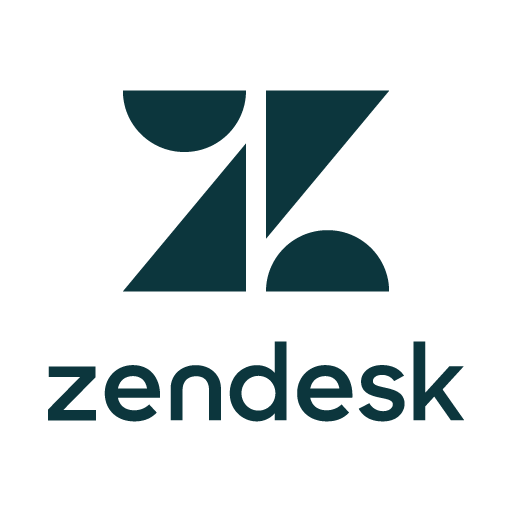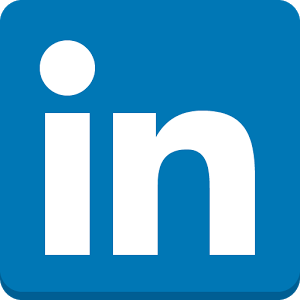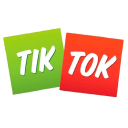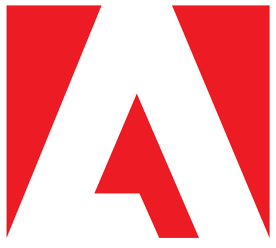We Built A Restaurant Booking Platform And Reached 7K Clients
Yu Taniguchi: Hi, I am Yu Taniguchi, CEO of TableCheck, the no 1 restaurant booking and guest platform in Asia. Our main headquarters is in Japan but we have flagship offices in Singapore, UAE, Thailand, Australia, China, and Indonesia.
Starting with our motto ‘Dining Connected’, we empower worldwide hospitality with our purpose-built solutions to help restaurants – including Hotels F&B, Enterprise F&B, Resorts, Beach clubs, etc. – to provide memorable experiences for their guests while also driving more revenue to their business.
The TableCheck platform is an all-in-one solution that combines online booking, TMS (table management system), and tools to elevate the guest journey and enhance restaurant operations. Currently, we have 8,000+ clients worldwide in 32 countries including 237+ Michelin restaurants. We are in the business of connecting restaurants and diners and soon we will be launching our marketing solutions as part of the ecosystem that we’d like to offer clients to power their business forward.
Some of our main clients overseas are Minor Hotels, Hyatt, Andaz, Pizza 4P’s, Fogo Brazilian BBQ Indonesia, and many more.


What's your backstory and how did you come up with the idea?
Yu Taniguchi: I am a foodie at heart. Since I was introduced to fine dining at age 22, I knew that my future company is going to be somehow related to the hospitality industry. Before founding TableCheck, I was also working in sales. Most of the restaurants in Japan at that time were still using pen and paper to make their bookings which is a very slow process. That became the seed for what TableCheck would become, to solve these types of pain points for restaurants and to optimize their operations.
In 2011, at the age of 26, I founded the company to become a standard solution for hospitality businesses in Japan. We were fortunate to have some angel investors in the early beginnings of TableCheck like Mr Idei Nobuyuki Idei, former CEO of Sony, whom I consider like a second father. With his guidance and the help of others, we grew to no 1 in the country and are still no 1 to date. In 2018, we also made a product name change from TableSolution to TableCheck to signal our ambition to become a global company. We are now very much focused on our global expansion.
I am confident that we have global products in our hands that could revolutionize the hospitality industry around the world.
For example, our booking and guest platform goes beyond just booking seats. We help hospitality operators take their guest experience to the next level through guest data. But unlike OTAs, we are the data custodians; the hospitality operators themselves own and control their guest data at zero cover fees, which means they can have direct access to their diners to build guest loyalty without paying the OTAs exorbitant costs and commissions.
And we are even going beyond that. One distinguishing factor is our business analytics tool called TableCheck Insight. We are the only hospitality tech company in the world that offers this type of advanced analytics tool for hospitality operators. It’s a tool that can help operators make smarter business decisions because they can understand patterns and trends in their industry or analyze different segments – all presented in a way they could easily access and understand. TableCheck Insight is what we call the secret superpower for restaurants.
Take us through the process of designing, prototyping, and manufacturing your first product.
Yu Taniguchi-san: Initially, I visited thousands of restaurants and interviewed them and asked them questions like ‘What are the issues you want to solve?’ Including ANYTHING related to their business, such as staff hiring, food purchase, TMS (table management system), etc.
Then we decided to enter the market with TMS initially and continued to study existing TMS.
We designed our business strategy while continuing to interview restaurants and operators, asking questions related to TMS. “What TMS do you use? What's good/bad about it? Why do you not use TMS? What is good/bad about OTAs? and so on.
We decided to build essential or critical functions as a priority to be able to start charging the clients and believed all other functions can be added later, to charge more. This process took 1.5 years.
We got our first customer after interviewing more than 2,000 restaurants, and some were supportive and believed in us that we can deliver what we promised them we could. I feel some of the initial paying clients were in a sense investing in us, in our dreams, which are in line with theirs (the clients).
How long until you knew you had a product fit?
We were always confident that our strategy had fit. To simply answer this question, we are NEVER product market fit, as the market is ever evolving. If we assume first paying clients to prove the product market fit, our goal is too small. If we say 7,400 clients paying us as of today prove our product market fit, our target is too small. We are continuously building/evolving our product to best fit the market, and there is no end to it.
It’s important to know the ins and outs of the business from the get-go before you build your product, and also during the development phase to make sure that you are on the right track. Our focus is to continue improving our technology that will help hospitality operators optimize their operations and make a seamless experience for their guests from booking to dining and even after they leave the venue.

Describe the process of launching the business.
Yu Taniguchi:
I went to the National Library of Japan and printed out all the restaurant businesses in Japan, and called them from A-Z, for more than 3 times. Therefore, in the initial days, I was cold calling the restaurants and restaurant companies. Then, each time I visited a restaurant, I asked them if they could make an introduction to a friend of theirs, telling them that I wanted to come up with a solution that could help them, but which required their help (so they could allow me to let me interview them).
All startup founders need to go through this. You don't have money, a product, or a team. The most important thing for the founder to do is to sell your vision, goal, and DREAM. Convince not only the customers, but your employees, and investors. To do that, my advice would be that you should be someone who is the most visionary leader in your company, and understands the market the most, more than your competitor, potential employee, or potential investor. To get to that state, you need to be damn smart, which is a prerequisite, and gain as much knowledge as possible in that industry. If you are smart and know everything about the industry more than anyone else, who can you not convince?
That’s why we initially provided the product free of charge to some restaurants so that they can experience and test how a tech product can enhance their business. Then when we saw some restaurants were satisfied with the products, we thought it was the right time to start charging for our products that we all believe could make a difference in restaurant operations.
We were initially called Vesper then TableSolution. In 2019, we decided to put all our range of products under the umbrella of TableCheck. I thought TableCheck embodies our whole philosophy of providing dining-connected experiences for both restaurants and diners. This year, we have also revamped our global branding. We have a new website and there’s a branding expression of a ‘ring’ which means ‘connection’ and ‘infinity’ which depicts our long-term commitment to our clients and their diners. It also closes the image gap between us and our competitors as we move towards our global expansion strategy.


Since launch, what has worked to attract and retain customers?
Passion was my compass when I built TableCheck. Right from the start, I took time to understand our clients and their business so we can develop products to solve their operational challenges. I’ve always been passionate about dining and 11 years after we founded the company, I still come and sit down and connect with them. Food is about human connection and it’s the same philosophy that we apply here at TableCheck, whether it be in sales or products. Our sales team makes sure to talk to the clients directly while our support consulting team constantly gets in touch with them to educate them to see the value of using our platform to improve their overall guest experience.
In Japan, online marketing proved to be inefficient, therefore just like what Facebook did, we decided to hit critical mass in certain client segments, such as within Global Hotel Brands or Michelin-starred restaurants. We as a company, historically, never used any advertising or paid marketing, besides when we spared a very small portion as an experiment.
We categorize our channels into three; Outbound, Inbound, and existing clients to add more venues. We started from Outbound very heavily with 100% of contracts coming from Outbound. However, as our client base grew, Inbound and Existing clients constantly grew. As of last fiscal year, 70% of our new contracts came from Inbound and Existing client expansion and only 30% from Outbound.
As I believed that branding and having a certain market share within a specific client segmentation was important, cold calling was the most efficient method for our strategy. For other companies with different strategies (or in other markets), online marketing or other methods might make more sense, but in our case, cold calling was the best way.
This is why f there is one piece of advice I could give future founders, it is the importance of connecting with their clients on a personal level.
As for our marketing strategy, I’ve always envisioned TableCheck as a global company so we are doing all we can now to sharpen our global strategy in the next five years. Our global sales team is hard at work now to build a solid clientele in Asia, where the market is predominantly very strong despite the issues with the pandemic. We’ve rebranded our global website recently and have been creating a lot of content in English to signal our intention for global expansion and in the future, we will be localizing content to cater to local clients.
I remember my mentor Idei-san when he said that Japan has lost three defeats: World War II, the Plaza Accord, and the IT revolution. So I made a promise to him that we will be the tech company from Japan that will take the world by storm, while we help our clients provide the best guest experience to customers one plate at a time.
How are you doing today and what does the future look like?
The future looks very bright. As the world bounces back from the Covid-19 pandemic, restaurants have suddenly become more aware of the need for platforms like TableCheck to navigate these new realities. Those who thought they didn’t need a booking platform before became suddenly conscious that it’s time to have a platform to manage their bookings, but also as a way of driving repeat guests to their restaurants. Next, we are going to become a marketing platform as well and offer EDM (electronic direct mail), branded booking journeys, and so on, so that restaurants can keep connecting with their guests whenever they need it, so they can stay on top of mind and top their competitors.
What sets us apart is that aside from being a B2B Saas company, we are also a B2C company. Ultimately the end user around this whole dining experience ecosystem are the guests so down the line, we are developing future products that would engage diners directly.
Through starting the business, have you learned anything particularly helpful or advantageous?
What I think was helpful to us is having a solid strategy. Rather than expanding to new markets and just going off without having a proper business plan is in a way careless. We decided to focus our efforts here on Asia for example first, rather than going straight to US and Europe because we know that the Asian economies are stable and potentially may outperform other economies as well.
Our reputation as a tech company in Japan can also resonate with the Asian countries because we are first and foremost an Asian company and yet with a global mindset.
What platform/tools do you use for your business?
As a SaaS company, we are stronger with our partners. Our tools are built to be integration ready. For example, we can be fully integrated with ‘Reserve with Google’ which is a powerful combination for restaurants because it means their diners can search for their favorite restaurants without having to leave Google Search.
We have all these smart integrations, with existing POS systems, guest databases, or the client’s SMS messaging solutions and the like to make sure that we help the restaurants enhance their productivity and their ultimate goal of driving more profit to their business.
What have been the most influential books, podcasts, or other resources?
Yu Taniguchi: Restaurants!
Advice for other entrepreneurs who want to get started or are just starting out?
As mentioned previously, there is no other way to lead or found your business, without passion. I would also advise young entrepreneurs to study every aspect of their business to the point that they become the most knowledgeable person in the company.
Textbook knowledge or knowledge gained through the university is not a guarantee for your success. A lot of successful entrepreneurs learned through practical experience which is the no 1 way to achieve success in my book.
Are you looking to hire for certain positions right now?
Yes, we are currently hiring members across our IT, product, sales, and consulting teams. We are always looking for people who would like to build the future of restaurant technology products.
Where can we go to learn more?
If you have any questions or comments, drop a comment below!

Download the report and join our email newsletter packed with business ideas and money-making opportunities, backed by real-life case studies.

Download the report and join our email newsletter packed with business ideas and money-making opportunities, backed by real-life case studies.

Download the report and join our email newsletter packed with business ideas and money-making opportunities, backed by real-life case studies.

Download the report and join our email newsletter packed with business ideas and money-making opportunities, backed by real-life case studies.

Download the report and join our email newsletter packed with business ideas and money-making opportunities, backed by real-life case studies.

Download the report and join our email newsletter packed with business ideas and money-making opportunities, backed by real-life case studies.

Download the report and join our email newsletter packed with business ideas and money-making opportunities, backed by real-life case studies.

Download the report and join our email newsletter packed with business ideas and money-making opportunities, backed by real-life case studies.














